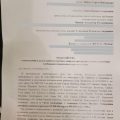
My readers often ask the question, how secure is API key trust management? CanThe trader with whom you agreed to trust, steal your money if they do not leave your account, and the rights of the trader are set up only for trading?
Alas, maybe. And in several ways.
And in order not to become a victim of such a scammer, you need to understand what you should be wary of.
First, consider the most obvious.
Omnidirectional transactions.
The trader takes trust management fromseveral people, and opens opposite positions with maximum volumes. For example, on Vladimir’s account he opened 100,000 contracts for the growth of Bitcoin, and on Peter’s account the same amount for the fall. Thus, he is guaranteed to make a profit on one of the accounts and withdraw his reward (as a rule, the profit is distributed between the trader and the investor 50:50).
The rest will be told — alas, this is the market. No luck, it happens.
One of the investors this time will also receivehigh profits, and most likely will bring more money to management. But next time he will be less fortunate. Since with such a scheme, one of the accounts produces very high profits in a short period of time (after all, if on one account liquidation is done, then on an open account in the opposite direction, it is almost double), then the profitable account is used to demonstrate and attract new investors.
If the trader does not show his positions immediatelyafter opening, but demonstrates it only when it closes, or when they are already in a big plus, and at the same time, the trading history is only for a short period of time - this is the first sign of such a scheme.
Theft of funds from the investor's account through the purchase of low liquid assets.
With proper preliminary preparation this is possible.do it through top altcoins. The mechanism is simple - a trader buys some assets at an abnormally high price, or sells them at an abnormally low price. The second party to the transaction is his affiliate account.
Result — transfer of investor funds to an account controlled by the trader.
Sign of the scheme - losses occur as a result of one or two transactions, the price of transactions differs from the market price, low-liquidity coins from the back of coinmarketcap are used,
Opening a large number of transactions.
Opening a large number of transactions, often in different directions for correlating assets, followed by fixing only positive transactions.
For example, buying Bitcoin and selling Ether.In any case, one of the transactions turns out to be profitable, the trader closes it and takes his share of the profit. And the losing trade remains on the account. This is repeated many times, then the account can no longer bear the losses and liquidation occurs.
A sign of such a scheme is that there are many transactions in the account that have been open for a long time, and the trader requires a profit distribution after each positive transaction.
Fundraising through an affiliate program.
Trader constantly opens and closes trades withminimum profit or zero. Before starting trading, he asks for a new registration on the exchange at his link, citing it with a discount on the commission or a promise to return part of the commission.
At the same time, he receives a reward on his accountfor volumes traded on your account. Often such a scheme is combined with option 3. Funds from your account in the form of a commission are slowly transferred to the account from the link from which you registered.
A sign of such a scheme is a lot of transactions that are quickly opened and closed, at a stop or with a slight plus, the economic meaning of which you do not understand.
How not to get hooked by a scammer?
Specify what assets a trader can trade, the amount of risk per transaction, establish that profit distribution occurs only when all positions are closed.
But you should understand that there is no mechanism to prevent all this from happening automatically, and you will not be able to monitor your account 24/7 in the hope of disabling API keys in a timely manner.
Therefore, we return to the most important question,which I raised in an article on my channel, when deciding to give money to a trader for trust management, make 100% sure that he knows how to trade profitably over a long period of time. If there is even the slightest doubt about this, let him provide additional evidence of his successful trading and dispel it. If he doesn't want to, just don't give him money.
Because only a successful trading traderInterested in long-term cooperation and augmentation of your funds. Those who do not trade, but temporarily got the opportunity to manage your money, have only one interest - to steal them completely or at least partially.
Be careful and careful not to give scammers such an opportunity. Better yet, learn to trade yourself. And then your non-market risks will be minimized.
Posted by Pavel Gromov, author of the Crypt Chief channel.
</p>



